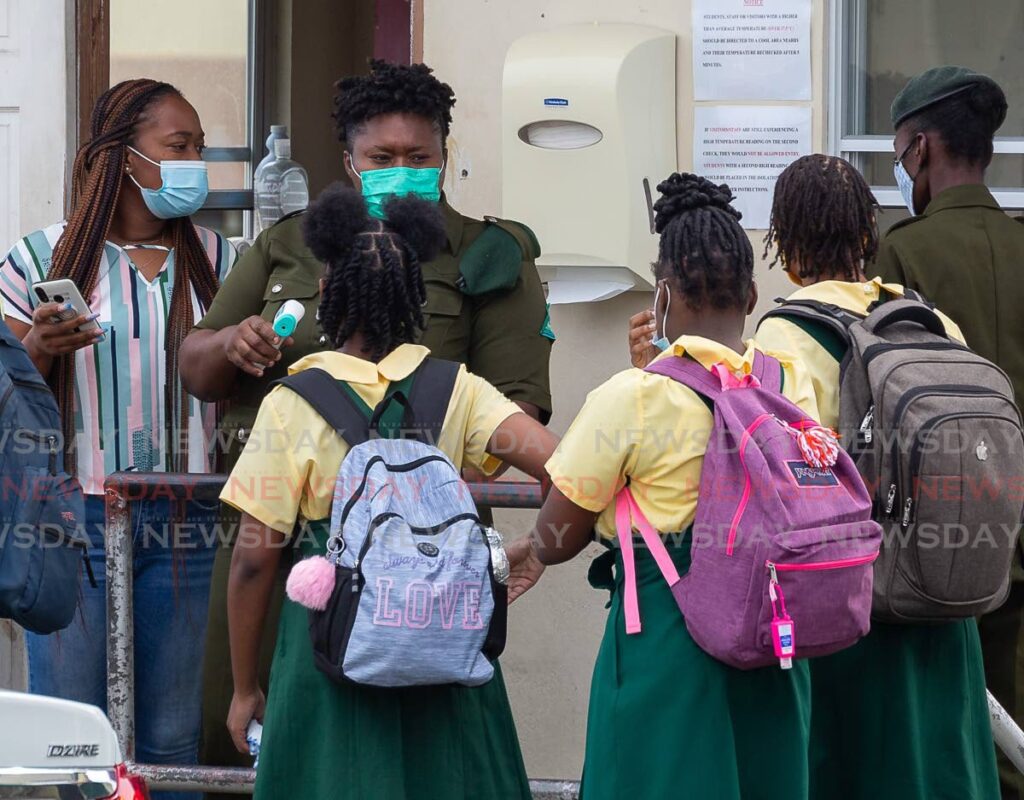Let's talk costs, benefits of re-opening schools

kmmpub@gmail.com
We need to start thinking about costs and benefits in a radically different way if tens of thousands of children are not to be permanently left behind by the continued lockdowns of schools.
What is worrying about this issue is that there seems to be a total unwillingness to grapple with any of the serious questions that we need to discuss if we are to give our children a chance.
In many ways this is unsurprising, given the near-universal allergy to data and statistics in the Caribbean in general, and in Trinidad and Tobago in particular.
We may argue that we don’t have the data to clearly assess the risk and say: if we open the schools this will create “x per cent” more risk for each person. But there are plenty of examples from across the world.
What is the point of our brilliant data scientists and epidemiologists if they are not attacking this question?
The first question is this: how many children and related adults does the government project to die if schools are reopened either partially or completely as compared to how many are currently being affected by covid19. Most people baulk at this type of moral choice, and emotions invariably dominate any discussion.
The problem is that society is very poor at consciously assessing the statistical value of life and making choices based on that, even though this is something we do every day. Yet to make the decision to open your door and cross the street is a statistical assessment of the risk that a car won’t come flying down the road and mow you down, even if we don’t perceive it as such in our daily lives.
The end result of this “ostriching,” however, is what we are currently doing: namely, ignoring the question entirely and responding with the blunt instrument of school closures, without any clear estimation or communication of the costs of either approach.
We need to start quantifying this risk immediately. What are the statistical incidences of worsened mental health? What is the rise, if any, of obesity? What about childhood poverty? What about parental poverty, from those who cannot afford child-care and must drop out of the workforce? What is the affect of school closures on educational attainment? What is the relationship between educational attainment and long-term health and death rates?
Perhaps our policymakers have all this information to hand. But I’m willing to bet that they don’t, and moreover have not even allocated the research resources to quickly produce this.

Before anyone protests that we don’t have the ability to pull together this information, I’d like to point them to the private sector, where for centuries insurance companies have measured the risks of life and death, health and wealth.
Their advantage of course is that they operate in the relatively impartial realm of commerce and have the luxury of being insulated from emotions in the way the politicians are not.
Clearly some sort of risk assessment is being made about other activities like our temporary Carnival (and by the way I still believe that cheap mass testing can enable a return to a larger scale Carnival, though that possibility is not even being explored). So why not schools?
I am not necessarily advocating a purely utilitarian viewpoint and am perfectly willing to accept that after the numbers are run, society may decide that even the cost of one statistical life is too much to accept. But the exhausted parents, miserable and stunted students (an entire lost generation) are owed at least the transparency of information so that we can make the choice. After all, we still don’t know how many life-adjusted years are being lost by continued school closures.
Even when looked at from a political lens, is in the government’s interest to address the question immediately.
Although many are angry on both sides, opening a frank and open conversation with the public about schools will build tremendous credibility from every parent with a school-age child. If handled right, this will ultimately translate into votes and perhaps even union buy-in.
We need to act now. We owe it parents and children who are being robbed of their most crucial years of their lives.
Kiran Mathur Mohammed is an economist and co-founder of medl, an IDB Lab, Microsoft, WHO & FT backed health tech company, winner of the TT Chamber Champion of Business award

Comments
"Let’s talk costs, benefits of re-opening schools"